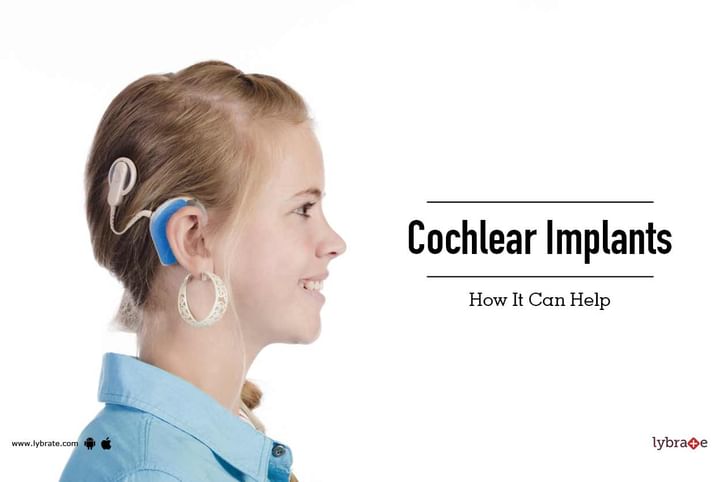Cochlear Implants - How It Can Help
Cochlear implant is a medical device that provides direct electrical stimulation to the hearing nerve in the inner ear. Children and adults with a severe hearing loss may be helped with cochlear implants. A cochlear implant is a prosthetic substitute directly stimulating the cochlea and it does not cure deafness or hearing impairment.
A cochlear implant completely by-passes the normal hearing mechanism and stimulates the auditory nerve directly by means of an internally implanted electrode assembly. The implant consists of an external portion that located behind the ear and an interior portion which is surgically implanted under the skin. An implant has a microphone, a speech processor, a transmitter and an electrode array. The sound from the environment is picked by microphone and transmitter and receiver/stimulator sends them to speech processor to convert them into electric impulses. The speech processor placed with the microphone behind the ear, or it is a small box-like unit worn in a chest pocket. The speech processor digitizes the sound signals and sends them to a transmitter just behind the ear. The electrode array collects the impulses from the stimulator and sends those to different regions of the auditory nerve. The electrodes stimulate the fibers of the auditory nerve, and sound sensations are perceived.
A cochlear implant is very different from a hearing aid. Hearing aids amplify sounds so that they can be detected by damaged ears. Cochlear implants bypass damaged portions of the ear and directly stimulate the auditory nerve. Hearing via a cochlear implant is different from normal hearing and takes time to adjust. However, it enables many people to understand other sounds in the environment, recognize warning signals, , and understand speech in person or over the telephone.
The benefits from a cochlear implant depend on many factors, such as the age of the patient when he or she receives the implant, the hearing loss present pre or post patient developed language skills and finally the motivation of the patient and family support
Once a person is referred for cochlear implant, more testing is done which includes audio logic testing, psychological testing, medical examination, and tests performed by the surgeon. It is done to ensure that the candidate will benefit from a cochlear implant and will have the motivation to participate in the process. Once the decision is made to go ahead, the surgery is done. Sometimes it involves an overnight stay in the clinic, and sometimes it is done on an outpatient basis. Six weeks post-surgery, patient is fitted with the external microphone and speech processor and implant is activated and programmed.
The best candidates are those having severe hearing loss in both ears, limited benefit from hearing aids, medical condition that makes surgery risky. Children can be considered for cochlear implants if they have the similar conditions as adults and in addition have support from their educational institutions to development of auditory skills.



+1.svg)
